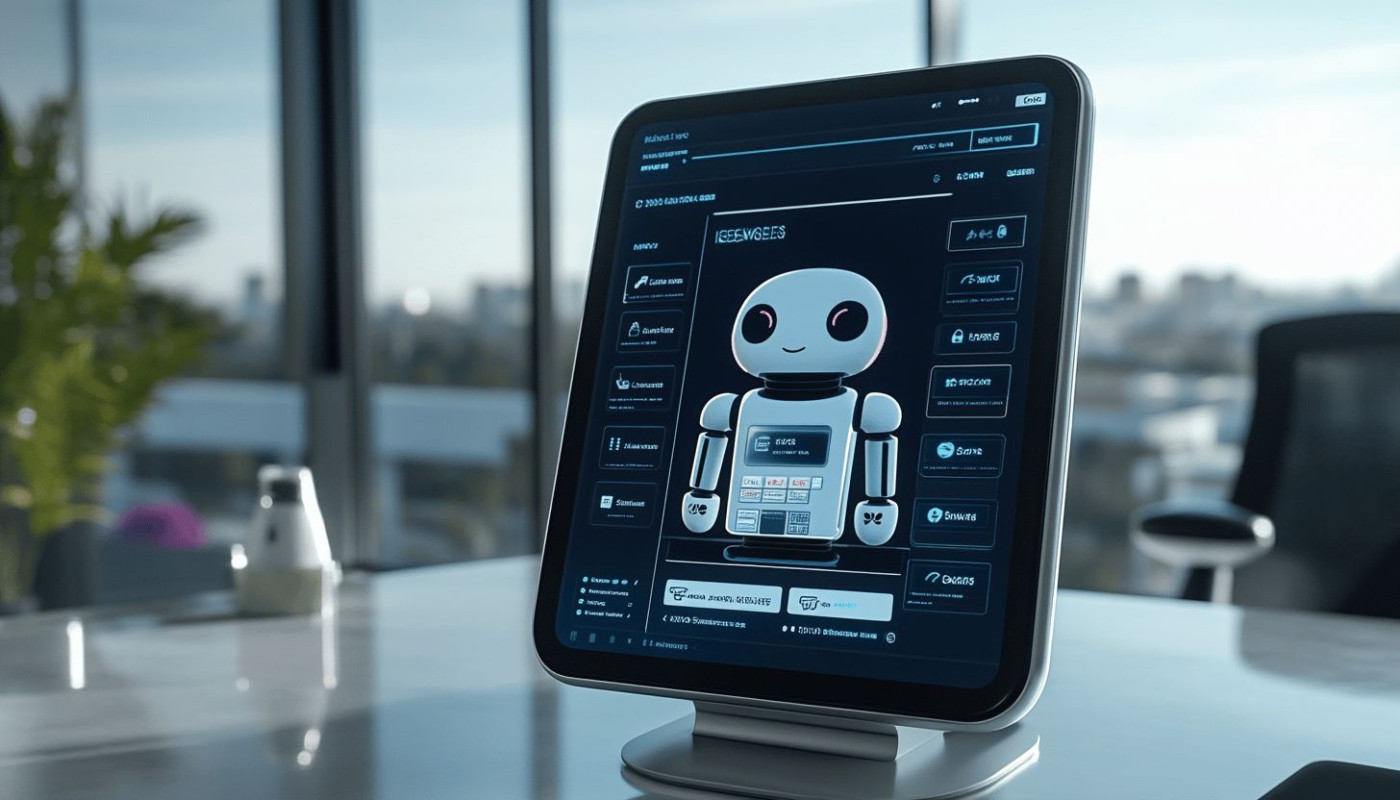Table of contents
Small businesses constantly seek innovative ways to streamline operations, enhance customer experience, and stay ahead of the competition. With the rapid development of conversational AI and automation tools, using a chatbot builder has emerged as a game-changer for smaller enterprises. Discover in the following sections how leveraging these platforms can open doors to improved efficiency, scalable customer support, and new growth opportunities that were previously out of reach.
Unlocking 24/7 customer engagement with automation
Small businesses often face the challenge of delivering immediate customer support with limited staffing resources. By leveraging a chatbot builder equipped with advanced features like natural language processing (NLP) and intent recognition, businesses can automate responses to common inquiries and routine requests at any hour. These virtual agents understand customer questions, route conversations appropriately, and even initiate workflows such as booking appointments or processing simple orders. The result is a responsive system that frees human employees to focus on complex tasks while ensuring no customer question goes unanswered due to time constraints or staffing shortages.
Integrating chatbots with instant messaging platforms, such as website chat widgets and social media messaging apps, extends customer service capabilities far beyond the confines of the standard workday. This persistent accessibility means that customers can reach out for support during evenings, weekends, or holidays—times when live staff are typically unavailable. When users receive timely answers and reliable support regardless of the hour, their trust in the business grows. Over time, such consistent engagement fosters stronger relationships, turning occasional customers into loyal advocates and helping small businesses compete more effectively in a market where responsiveness is highly valued.
Streamlining lead generation and qualification
Deploying a chatbot builder can transform the way small businesses capture leads and qualify prospects by automating conversation-based interactions—turning static website forms into engaging, real-time dialogues that encourage visitors to share information effortlessly. By utilizing conversational forms, chatbots ask tailored questions, instantly collect key data, and use lead scoring to evaluate which prospects merit immediate attention, reducing the manual workload on stretched sales teams. Seamless integration with CRM systems allows chatbots to automatically update prospect profiles, while instant analytics provide actionable insights for targeted follow-up. This data-driven approach ensures small businesses can identify high-potential leads quickly and nurture them with timely, relevant content.
Trigger-based engagement enables chatbots to reach out at optimal moments, such as when a visitor lingers on a pricing page or revisits key sections, enhancing the likelihood of a meaningful connection. Conditional logic within chatbot conversations adapts the dialogue according to user responses, ensuring that prospects receive information tailored to their needs and interests, which fosters trust and boosts conversion rates. Segmentation further personalizes the experience, directing users to the most suitable resources or offers based on their profile. By automating repetitive sales tasks, chatbot builders free up small business teams to concentrate on more strategic activities. Notably, Botnation AI offers a free, nocode, ai tool that empowers even non-technical business owners to set up sophisticated lead qualification processes without extensive resources.
Enhancing customer experience with personalization
Chatbot builders today utilize user profiling, behavior tracking, and contextual awareness to deliver deeply personalized interactions. By capturing data such as previous purchases, browsing history, and frequently asked questions, these platforms can dynamically adjust responses based on each customer’s unique journey. For example, a boutique retailer might configure its chatbot to suggest accessories that match a user’s last purchase, while a local café can prompt returning visitors with tailored loyalty rewards. These personalized conversational flows can be set up with intuitive drag-and-drop interfaces, allowing business owners to design custom pathways without writing complex code.
This advanced level of personalization drives customer retention, cultivates trust, and elevates brand perception by making each visitor feel recognized and valued. AI-powered sentiment analysis further enhances this process by identifying customer emotions in real time, enabling chatbots to respond empathetically or escalate issues when negative sentiment is detected. Feedback collection mechanisms, seamlessly integrated into chat flows, invite users to share their thoughts after interactions. By acting on this direct input, small businesses can continuously refine their chatbot’s performance, ensuring a cycle of ongoing improvement and deepening customer loyalty over time.
Reducing operational costs and boosting efficiency
Integrating a chatbot builder into business operations enables small companies to limit expenses by automating repetitive inquiries and administrative processes. Instead of relying on staff to answer FAQs or schedule appointments, a well-designed chatbot can handle these tasks instantly and around the clock. This automation not only conserves payroll resources but also speeds up response times, enhancing client satisfaction. Routine administrative actions such as order tracking, payment reminders, or collecting customer feedback become more streamlined, allowing employees to focus on tasks that require a human touch or strategic thinking.
Cloud-based deployment of chatbot builders offers practical advantages by eliminating the need for on-premises infrastructure, leading to lower maintenance and hardware costs. Omnichannel integration ensures that the same chatbot can operate seamlessly on websites, social media, and messaging apps, reducing the need for multiple support systems. With API connectivity, chatbots can access real-time data from inventory, CRM, and billing systems, creating a unified experience and minimizing manual data entry. This interconnected approach means that businesses manage customer interactions more effectively, and employees spend less time switching between disparate tools.
Chatbots offer a significant cost advantage compared to traditional support channels, which typically require hiring and training staff to handle fluctuating workloads. For small businesses, this difference is particularly impactful, as resources are often constrained. During peak periods, such as holiday sales or product launches, chatbots can seamlessly manage a higher volume of customer requests without additional expenses or delays. Scalability is inherent to chatbot technology, ensuring that service quality remains consistent even as the business grows or experiences sudden traffic spikes, all while keeping overheads in check.
Gaining actionable insights for business growth
Chatbot builders offer small businesses a powerful suite of analytics tools, transforming every customer interaction into a wellspring of actionable insights. Real-time reporting dashboards reveal patterns in user engagement, frequently asked questions, and drop-off points—allowing businesses to adapt their communication strategies on the fly. Conversation analytics dig deeper, highlighting customer sentiment, recurring pain points, and emerging trends, which can inform product development and marketing approaches. User feedback collected seamlessly through chatbot conversations serves as an ongoing pulse check, uncovering hidden customer needs or areas for improvement that may otherwise go unnoticed.
The ability to conduct A/B testing within chatbot flows empowers businesses to experiment with different messages, response styles, or calls-to-action, identifying which variations drive the highest engagement or conversions. Funnel analysis helps pinpoint where customers disengage, providing a roadmap for refining the user journey and increasing satisfaction. By tracking key performance indicators such as response time, resolution rates, and customer satisfaction scores, businesses ensure their chatbot remains a valuable asset. Integrating chatbots with business intelligence platforms further enhances this process, merging conversational data with sales, support, and operational metrics to reveal broader business opportunities. Embracing a data-driven approach enables small businesses to adapt quickly to customer needs, make informed decisions, and lay the groundwork for consistent, sustainable expansion.
Similar articles

Tailoring Education To Individual Needs With AI Assistants

Enhancing Customer Service With AI Assistant Innovations

How AI Assistants Are Shaping The Future Of Remote Work

Streamlining Your Workflow With Efficient Strategies For Kubernetes Upgrade Deployment

Streamlining Your Business With Efficient Kubernetes Cluster Upgrades

How To Choose The Best Mobile Booster For Office Efficiency?

Best Practices For A Seamless Kubernetes Cluster Upgrade

How To Craft Your Ideal AI Companion For Daily Interaction?

Ensuring Business Continuity During A Kubernetes Cluster Upgrade

How Does An ESIM Simplify Your Mobile Data Needs While Traveling In Europe?

How Small Businesses Can Leverage A Chatbot Builder To Improve Customer Service

Exploring The Impact Of Jurisdiction Choice On Crypto Licensing Success

How To Choose The Right Chatbot Builder For Your Business Needs

How Choosing The Right Chatbot Builder Enhances Customer Service

Exploring The Impact Of UX Design On Chatbot Effectiveness

Advancing AI Prompt Design For Enhanced Creative Outputs

Exploring The Future Of Multi-channel Chatbots In Customer Service

The Evolution And Future Of Conversational AI In Customer Service

How To Build A Chatbot Without Coding Skills In Under 10 Minutes

Understanding The Emotional Stages Of Breakup And How To Navigate Them

How AI-driven Chat Platforms Revolutionize Customer Interactions

Exploring The Future: How Free AI Tools Are Shaping Industries

How Integrating Chatbots Can Transform Customer Service Efficiency

Enhancing Customer Engagement With Advanced QR Code Features

Step-by-step Guide To Diagnosing Connectivity Issues With Online AI Tools

